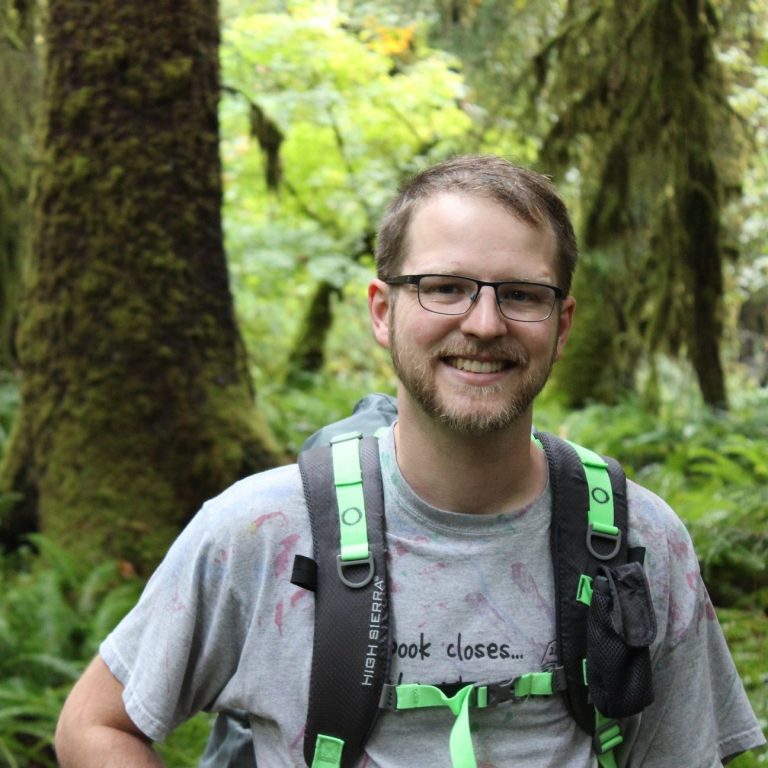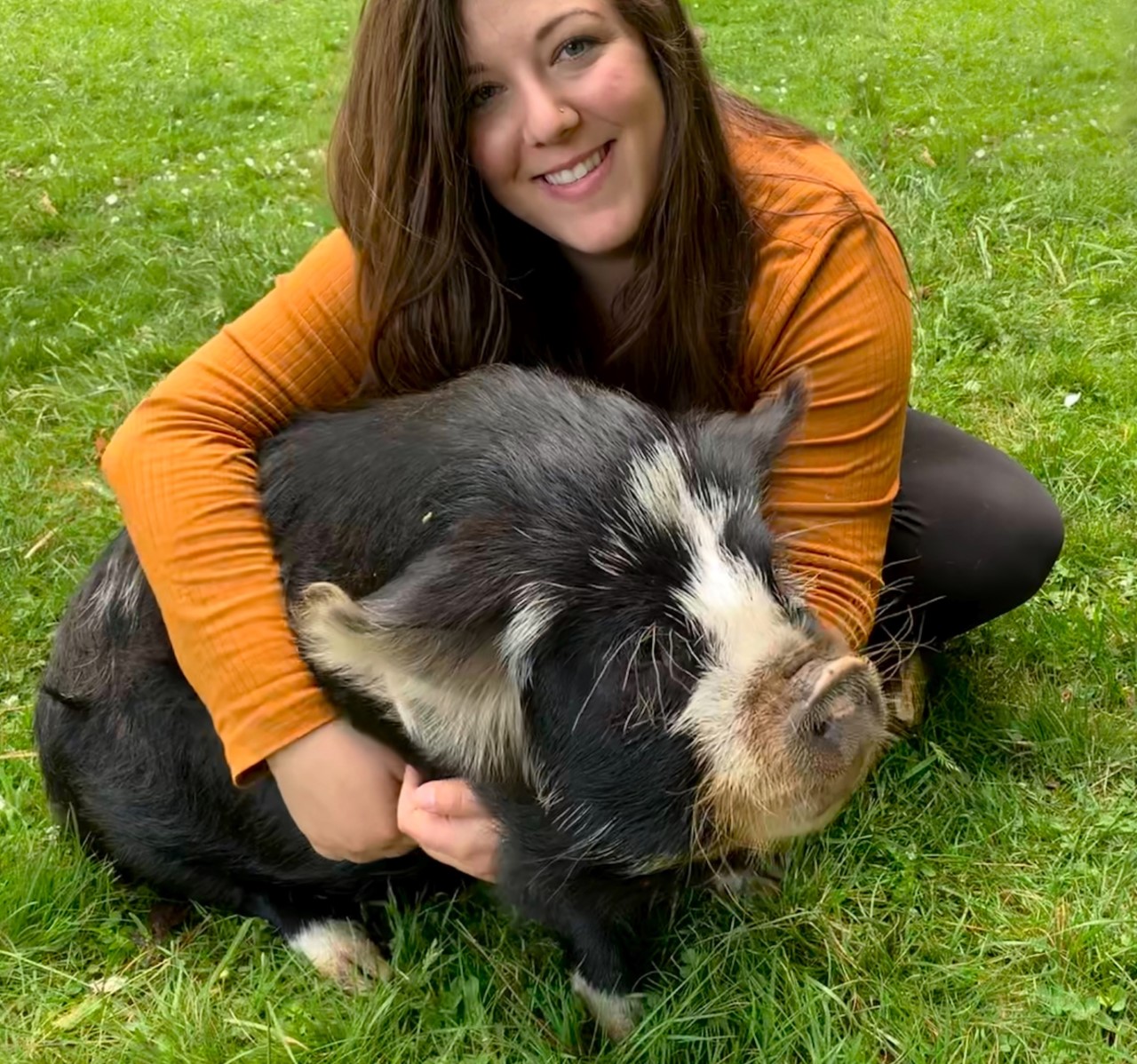Winter 2016
Published: 01/15/2016
A Note from the Chair
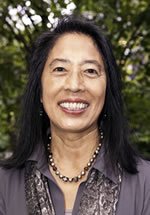 |
| Photo: Sheri Mizumori |
Happy holidays to our many alums and friends! As 2015 comes to an end, it is exciting to recall the many accomplishments and high points of the year. It started with the arrival of two new assistant professors (Drs. Gire and Stocco) who carry out some of the most technologically advanced research on the mind and brain. The year was filled with national and international recognition of the many astounding discoveries by our faculty, graduate and undergraduate students, and postdoctoral fellows, as well as the community impact of their research. I thank our many friends who helped to make these hires and research successes possible. We were also very excited that one of our long time faculty members was selected to be the President of the University of Washington. Congratulations, President Cauce!
In this 2015-2016 year we are celebrating our 99th birthday! Over the decades, our department has had historic impact on the field of psychology and on our understanding of behavior in our everyday lives. We are not done yet! Stay tuned for a number of public events that are planned for this and next (our 100th) year where you will hear about not only our accomplishments but, more importantly, our vision for the future. We hope that you become involved in our future by attending these events and/or contributing to one of our important future goals, and that is to shorten the distance between ground breaking research discoveries and their implementation for the benefit of society. One such event is the 2016 Edwards Public Lecture Series that is focused on ‘Connecting the Dots Between Research and the Community.' Hope to see you there this spring!
Have a peaceful holiday, and best wishes for a wonderfully exciting new year!
Sheri
Featured Articles
Appreciating Our Psychology Major Veterans
"The most inspirational part of my educational career has been the people who have seen me differently than the majority of the students who attend UW. These are the people who respect my experiences, my drive, my energy, my perseverance and resilience, but most of all, who trusted me."
- Stephanie Shadwick, Psychology major and US Navy Chief Petty Officer
With the most recent observance of Veterans Day just behind us, it seems a good time to focus on some of the students who are both psychology majors and US military veterans. Each of the four students profiled here has taken his or her own unique path to UW. They have different goals and different experiences here at UW, but all share the characteristic of having volunteered to serve their county. We thank them.
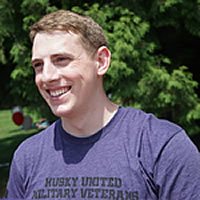 |
| Photo: Jordan Houghton |
Jordan Houghton - Psychology BA, August 2015 and former US Army Combat Medic/Healthcare Specialist
Born in Seattle and growing up mainly in Hawaii, Jordan enlisted in the US Army in 2009 in part to earn money to attend school through the Army's Tuition Assistance Program. He earned his EMT license at Fort Sam Houston, in Texas, and began his academic studies at Pierce College. As he left the military, Jordan had been accepted to attend Washington State University, but held out as long as he possibly could to hear from his top choice, UW. Taking it right to the wire, Jordan learned of his acceptance to UW while sitting in his orientation session for WSU!
While he believes that, in general, professors seem to have little understanding of veterans or their specific issues, he notes that happily most of his professor were different. "There are so many things that have inspired me," says Jordan, "from seeing the love and care that some students have for their peers to how much a teacher like Dr. Jacquie Pickrell or Dr. Jaime Diaz truly cares about your education and that you come out with the knowledge you need."
Student leadership experiences have been a highlight of Jordan's time at UW. As a peer teaching assistant in Psychology 101, Jordan felt rewarded by the enthusiasm of many of the students he worked with. Observing that some of the best leaders come out of the field of psychology, Jordan shares that he served as the 2014-15 president of the Husky United Military Veterans (HUMV) student organization, and that the current president is also a psychology major.
A recent graduate, Jordan is currently in the process of applying to graduate programs in clinical psychology, with his eye on the prize of potentially being admitted to the UW's clinical Ph.D. program.
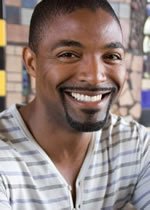 |
| Photo: Dmarkis Wigfall |
Dmarkis Wigfall - Pursuing a BA in Psychology and served in the US Navy
From Dallas to San Diego to Seattle, Dmarkis has packed a lot into his 41 years. From acting and performing to serving for 10 years in the US Navy to working as a professional barber, a common thread for Dmarkis has been the quest to learn and try new things and experiences. A high school career fair sparked his interest in the military, fueled perhaps by the fact that his grandfather had also enlisted as a young man. The Navy was his eventual choice. "They offered a pretty sweet deal and some direction that would grant me an education, adventure, and a career," recalls Dmarkis.
That education initially took the form of an Associate's Degree in cosmetology from San Diego City College - Dmarkis is a third generation hair stylist. It was in his work as a barber that Dmarkis began to notice a certain confidence in dealing with people, as well as a gift for being a good listener, experiences that led to his interest in psychology. Always hoping to pursue higher education, he entered North Seattle College and transferred to UW this autumn. "I fell in love with the campus before I even knew I would be a student here," remembers Dmarkis. Tenacious about obtaining his educational goals, Dmarkis hopes to honor the people in his life who have supported him. He also hopes that his own unique background will position him well to help others in need. "Being African-American, gay, former military, and a father, I have one hell of a story to tell," says Dmarkis, who wants to help others like him for whom he currently sees no real guides. "I want to be one of the persons to stand in the gap," he says.
Of his brief experience here at UW, Dmarkis says it has been relatively uncomplicated and very supportive. He recommends taking any class with Psychology lecturer Dr. Ann Voorhies, as well as Psychology 299, a course designed specifically for first-quarter transfer students planning to major in psychology. He is excited about the wide range of research and volunteer opportunities and encourages all students to "do your homework early about what your interests are and then throw out your net!"
Jack Ferguson - Pursuing a BA in Psychology and former US Army Combat Engineer
Jack remembers wanting to come to UW since he was in fifth grade. "It was the most prestigious university in Washington, plus my teacher was a Husky which didn't hurt to influence me" recalls Jack. After joing the US Army in 2000 and initially sustaining an injury at Airborne School, Jack served at Fort Irwin, in Death Valley, California, training units in desert warfare and counter terrorism tactics.
Born in Snohomish and having lived in Arizona, Alaska, California, and throughout Washington state, Jack now makes his home in Everett along with his wife (who is a disabled veteran), and their three children, ages three to eight. His inspiration to focus on psychology came while studying English at Everett Community College when his brother and fellow Everett CC student talked him into taking a psychology class. "After that quarter, I switched my major to psychology," recalls Jack, "as my new mission was to help veterans returning with a range of mental health needs in any way I can." He felt lucky to make the transition to UW.
But, the reality of that experience has, in some ways, not lived up to the expectations of that fifth grader who hoped to one day be a Husky. "The UW is unfortunately not a very friendly campus to veterans," related Jack. "Fortunately, we have overcome most of the obstacles put in front of us," explains this current HUMV president, "but tackling this beast, especially as a student with a wife and three kids, is a full time job and has become an immense strain on my life." Jack, who would like to see more support for veterans on campus, especially increased access to mental health care, sees the HUMV student organization as a bright spot where he feels welcomed and included. He encourages all students to volunteer and get involved, experiences that he has found truly rewarding.
Jack's post-graduation plans include earning a Ph.D. in clinical psychology, ideally at UW or Stanford. Armed with that, he plans to rejoin the US Army to be deployed in an active zone in order to best help service members in the critical stages of mental health needs. Eventually, he sees applying his degree in a research based way to understand suicide and perhaps working at the VA in order to "help veterans and their families heal from unseen wounds."
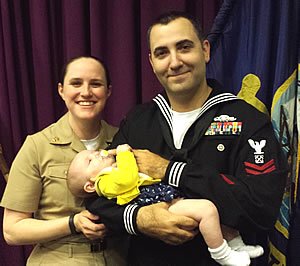 |
| Photo: Stephanie Shadwick with husband Joseph and daughter Cassidy |
Stephanie Shadwick - Psychology BA expected March 2016, US Navy veteran and current active-duty reservist
Originally from Fremont, California, Stephanie's path to UW came via four years in the US Navy from 2001-2005, a brief attempt to balance school and work, the past seven years as an active-duty Navy reservist, and graduation from Everett Community College in 2012. Along the way came marriage to her husband, also a veteran and current Navy reservist, and the birth of their now two-year old daughter - who as an infant accompanied Stephanie during her UW orientation session.
Stephanie credits the Post 9/11 GI Bill with allowing her to attend school full time without the added strain of holding a job. She also gives credit to some of those in the Psychology Department at UW who have been particularly supportive of her goals - Dr. Jaime Diaz, Dr. Debbie Chun, and Advising Office Director Carrie Perrin. Stephanie cites the time involved in being a reservist as the biggest challenge on the road to her degree. Currently stationed in Everett, mentoring and managing sailors' mobilization readiness as a Chief Petty Officer, her commitment involves one weekend a month and two full weeks each year. Her husband is also a reservist who recently earned his business degree from UW.
In spite of the challenges, Stephanie does note that her past and current military experience has allowed her to incorporate strengths gained in the service into her civilian life. Along with a high level of organization, attention to deadlines, and the unique ability to guide and mentor others, Stephanie highlights the lack of fear in actively pursuing her studies. "My experiences have allowed me to minimize my humility and pride so that I can ask questions in an open forum," she says, "questions I know many other students do not feel comfortable asking."
With a light at the end of the tunnel leading toward her BA in psychology, Stephanie looks forward to taking a break from school, enjoying her family, and taking the time to see what comes next. "The last two years have been stressful and challenging," she notes, "which have all been distractions from being able to pinpoint my true interest."
Fellow's National Award Studies the Turbulent Years of Adolescence
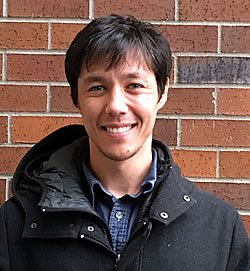 |
| Photo: Connor McCabe |
The Psychology Department is home to many bright and talented graduate students. We revel in their professional success! One recent success came in the form of an NRSA received by Connor McCabe (Child Clinical with Kevin King). The background of this research award was covered in a previous article. Learn more about Connor, his research, and hobbies below!
Let's start with the basics, where are you from and where did you complete undergrad/master's?
I grew up in the Northern California Bay Area and got my undergraduate degree in psychology at the University of California, San Diego.
How did you wind up at UW/why did you apply here? What do you think about living in Seattle?
I applied to UW because I wanted to conduct research in the area of adolescent self-regulation, and Kevin’s (Assoc. Prof. Kevin King) interests were an outstanding match with where I wanted to go in my career. I also really valued the balance and integration between research and clinical training of the UW program. And, it was a top program located in Seattle to boot, so I had to apply!
Seattle has been a consistently wonderful place to live. The people are down-to-earth, the eateries and breweries are great, and there is no shortage of things to do. The culture here is awesome. I simply wouldn’t want to be anywhere else.
What is your research interest and how did you get into it (what inspires/motivates you)?
Broadly, I study adolescent self-regulation and associated psychopathology, with particular interest in sexual minority mental health. Adolescence is fascinating because it’s a time of rapid change – arguably more so than any other period. Teens are required to navigate their independence, their sexuality, their identity, their peer groups, their heightened and variable emotions, and so many other demands – yet are the most developmentally sensitized to their environment and are still developing in their self-regulatory capacities to navigate these transitions gracefully. It’s the storm of this period that solidifies who we are from that period onward: weathering it well or weathering it poorly can have implications that could last a lifetime. I’m interested in sexual minority development because few groups experience these trials more harshly than non-heterosexual or non-cisgender teens. I’m inspired by the resiliency of this population, and I’d like to understand individual differences in risk among LGBT youth for developing psychopathology.
How did you learn about your funding opportunity and tell us about the application/waiting process?
The NRSA is pretty ubiquitous in graduate school and I can’t quite remember when I first heard about it, but what I remember thinking when I first decided to apply was “there is no way I can pull this off.” So, if you have that thought, notice it and let it pass because it’s unhelpful (and totally untrue). The waiting process can be very frustrating/anxiety-provoking, but the things to keep in mind are: 1. you are not alone; and, 2. ultimately, the process of writing it is worthwhile in itself, even if things don’t go your way in the end, so throw yourself in and engage in the process rather than the outcome.
How did you feel when you learned that your application was accepted and that you will receive funding?
Disbelief, followed by elation. It felt incredible to have a funding agency validate your thinking and your research idea, and to effectively communicate “we’re experts, and yes, you know what you’re talking about – or at least you will by the time we stop throwing money at you.”
What is the name of your project and the funding source?
“Developmental Pathways of Substance Use among Sexual Minority Women.” Funding was provided by the National Institute of Drug Abuse (NIDA).
Do you have any advice/tips/suggestions for others who may apply to this opportunity? About graduate study in general?
I have many, but perhaps the most important thing I’d recommend is to find the synthesis between what you love and what would be feasible to fund. Practically, getting funded is important because you cannot pursue what you care about without it, but it’s equally (if not more) critical to keep in mind that this is also the topic that represents you; it reflects the career you hope to grow in to. Doing anything less than that is not in your (or the funding agency’s) best interest, and it would be grueling to spend years on a project that you are not intrinsically excited about. The same can be said of graduate school in general I think. Remember that building a research career is part of building how you want to spend part of the rest of your life, so make it count, and make sure it’s bringing you closer to what you want to do and who you want to be.
What do you hope to accomplish with the funding and/or while in the UW Psychology graduate program?
My research goal for my grant is to help our understanding of LGBT substance use via psychological mechanisms from a developmental psychopathology framework. We cannot hope to reduce disparities without knowing what to target, and what characterizes individual differences in risk in an at-risk – yet largely resilient – population. In terms of career growth, I want to learn more about the etiology of substance abuse, LGBT identity development, neurobiological aspects of adolescent development, and emotion regulation; I think there is much to be gained in synthesizing these literatures, and I want to use this project to do it. Moreover, I want to become expert in advanced longitudinal methods, as I think good researchers and good instructors in quantitative psychology are very much needed in the field right now.
What do you like doing in your spare time?
I like to home brew, work out, play video games, and play table tennis. I also really enjoy going out dancing when I need to let out some stress. I’m also really into the Seattle brewery scene; the nanobreweries here are my favorite places to hang out.
The last book and/or movie you saw and enjoyed?
Good question! I’m a huge superhero fanboy, and I recently re-watched Captain America: Winter Solider. I also recently re-watched the original Star Wars trilogy, which really never gets old.
What you plan to do once you complete your PhD?
I plan on pursuing a faculty position where I can continue doing research in adolescent development and continue fostering, applying, and teaching quantitative methods. Within that, I would love to teach a graduate regression or HLM course in the future as well, as I’ve had a lot of fun as a TA in grad stats so far!
Supplemental Reading:
- Ruth L. Kirschstein National Research Service Award Institutional Research Training Grants
- Grants and Funding Information Service (GFIS) through the UW Libraries.
Dr. Sapna Cheryan Invited to the White House
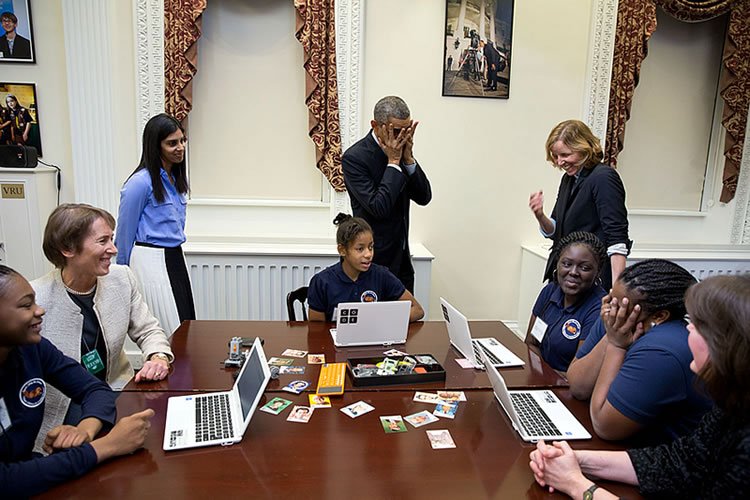 |
| Photo: Dr. Sapna Cheryan with President Barack Obama at the White House |
Sapna Cheryan was invited to the White House in December 2014 for Computer Science Education Week, where she got to meet President Obama, Chief Technology Officer Megan Smith, and John Holdren, Director of the Office of Science and Technology Policy. The White House issued a press release announcing a “computer science classroom design prize” based on her work on how to change environments to encourage more women to enter computer science.
Population Health Pilot Grant Funds Autism Screening Tool Research
Shana Attar and her advisor Dr. Wendy Stone (Child Clinical) received an eight-month award from the UW Population Health Institute, Tier 1 Pilot Grant Program for their research titled "My Toddler's Social Communication: Examining the Cultural Sensitivity of a New Pictorial Screening Tool for Identifying Toddlers at Risk for Autism in Diverse Cultural, Ethnic, Racial and Linguistic Settings."
Research on HIV Risk Awarded Funds from UW Addictions, Drug & Alcohol Institute
Neil Gleason and graduate advisor Dr. William George received a one year, $20,000 research award from UW Addictions, Drug & Alcohol Institute for their work titled "A Mixed-Methods Examination of HIV Risk in Men Who Have Sex with Men: Effects of Alcohol and Sexual Compulsivity."
Alumni Spotlight: Sunny Allen, Class of 2018
Psychology alumna Sunny Allen (Class of 2018) reflects on her time in Psychology. Read more...
Psychology Graduation Speakers Reflect on Time in Department

Each year, the Psychology Department chooses three graduating students to give talks at the Psychology Graduation Celebration. This year, from among all applicants, we narrowed the field to six finalists. Read More...
.jpg)
